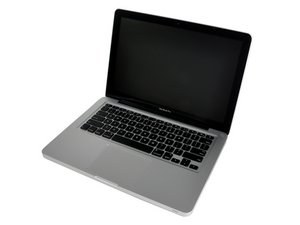New 1TB HDD won't mount internally
Hey :) I hope you can help!
I just bought a new 1TB Seagate HD as the old 500GB drive died, but I'm having trouble with it mounting internally. It didn't work so I mounted it externally in a USB enclosure no issues. I even installed El Capitan on it whilst it was externally mounted. It boots and runs fine - but I don't want to run my mac from an external drive!
When I put it back internal (into the HD bay), it gives me the question mark folder. Going into Disk Utility in Recovery shows the drive (1 TB ST1000LM024 HN...) and the volume (disk12s1), but when I click "Mount" it simply doesn't do anything.
Any ideas? Thanks for your time :)
HD SPECS: Link here.
Seagate
Buffer: 8 MB
Drive Interface Standard: SATA 3
Drive Interface: SATA
Drive Type: Internal
Drive Width: 2.5"
Product Family: Momentus
Spindle Speed (rpm): 5400
Storage Capacity: 1 TB
MACBOOK: Link here.
Processor: 2.5GHz dual-core Intel Core i5 processor
Is this a good question?

 2
2  1
1 
 970
970 

1 Comment
Apple doesn't get into the nitty-gritty details of your system. I find the EveryMac web site as being my goto for the deeper details. As an example here is one of the systems in this series: MacBook Pro 13" 2.9 GHz i7 (Mid-2012). While you may have one of the slower CPU versions the core specs are the same.
Here is where you can verify what your HD's SATA port speed is - SATA III (6.0 Gb/s). That is not to say what the rest of the system is configured to run at. The HD's specs are what they are marked on the device (or looked up by its P/N) or what you can find in the About This Mac > System Report listing.
by Dan